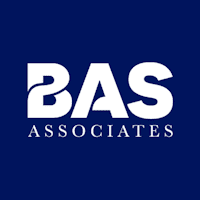Managing your business’s finances effectively requires a clear understanding of the different types of expenses you incur. Two key categories that often cause confusion, capital vs revenue expenses, are crucial to grasp. Although both are vital to your business, they are treated differently for accounting and tax purposes, impacting your financial statements and tax liability.
Here’s a deeper dive into Capital vs Revenue Expenses, why they matter, and how to manage them effectively.
What Are Capital Expenses?
Capital expenses (or capital expenditures) are the costs your business incurs to acquire, improve, or extend the life of long-term assets that will benefit your business for more than one accounting period. These assets are significant investments such as property, machinery, equipment, or vehicles that provide lasting value and support your business’s operations over several years.
Unlike everyday operational costs, capital expenses are not immediately deducted from your income in the year they occur. Instead, they are capitalised, meaning they are recorded as assets on your balance sheet and then gradually depreciated or amortised over their useful life. This accounting approach reflects the asset’s contribution to income generation over time, aligning the expense with the period in which the asset is used.
Examples of Capital Expenses:
- Purchasing new machinery or equipment to enhance production capacity.
- Significant improvements to office buildings or facilities such as increasing the space by, for example, building an extension to your warehouse
- Acquiring patents, trademarks, or other intangible assets that provide long-term competitive advantages.
Key Points About Capital Expenses:
- They result in the acquisition or improvement of long-term assets.
- Capital expenses are recorded as assets and gradually expensed over time through depreciation or amortisation.
- Whilst not immediately deducted from your income in the year of occurrence, they do reduce your tax liability through capital allowances, which if dealt with correctly, could still be written off in the year of occurrence
- These expenses often represent strategic investments in the future growth and efficiency of your business.
What Are Revenue Expenses?
Revenue expenses, on the other hand, are the routine costs that keep your business running on a day-to-day basis. These are directly related to the normal operations of your business and are fully deductible in the year they are incurred. Unlike capital expenses, revenue expenses do not add long-term value to your business but are essential for maintaining its ongoing functionality.
Revenue expenses immediately impact your profit and loss statement, reducing your taxable income for the year. These recurring costs ensure your business remains operational and competitive, covering everything from rent and utilities to employee wages and office supplies.
Examples of Revenue Expenses:
- Rent for your business premises, keeping your operations going month after month.
- Utility bills such as electricity, water, and internet services.
- Office supplies, marketing costs, and employee salaries and benefits.
- Routine repairs and maintenance that keep assets in working order without enhancing their value, like servicing equipment or repainting office walls.
Key Points About Revenue Expenses:
- Revenue expenses are essential for the daily operations of your business.
- They are fully deductible in the year incurred, providing immediate tax relief.
- These expenses are necessary for the smooth and continuous running of the business.
Why the Distinction Matters
Distinguishing between capital and revenue expenses is essential for accurate financial management, compliance with tax laws, and strategic decision-making. Misclassifying these expenses can lead to incorrect financial statements, potential tax penalties, and missed opportunities for tax deductions.
Capital expenses impact your cash flow differently than revenue expenses because their cost is spread out over several years. This affects both your financial planning and your long-term investment strategies. Properly managing capital expenditures ensures that your business assets are maintained and optimised for future growth.
Revenue expenses, meanwhile, are critical for your short-term financial health. Managing these costs effectively helps keep your business profitable and operational on a daily basis. By accurately categorising revenue expenses, you can ensure that your business is taking full advantage of tax deductions, thereby optimising your taxable income each year.
Maximising your business potential through accurate expense management
In summary, capital expenses are strategic investments that provide benefits over time, while revenue expenses are the ongoing costs that keep your business operational today. Accurately identifying and managing these expenses ensures your financial records are correct, your tax returns are compliant, and you are making informed decisions that support your business’s growth and sustainability.
Whether you’re investing in new equipment or managing everyday costs, understanding the difference between capital vs revenue expenses will help you optimise your financial strategy.
If you need guidance on how to manage these expenses effectively, our team is here to provide expert support and advice tailored to your business needs. Contact us today to ensure your financial management is on the right track.






